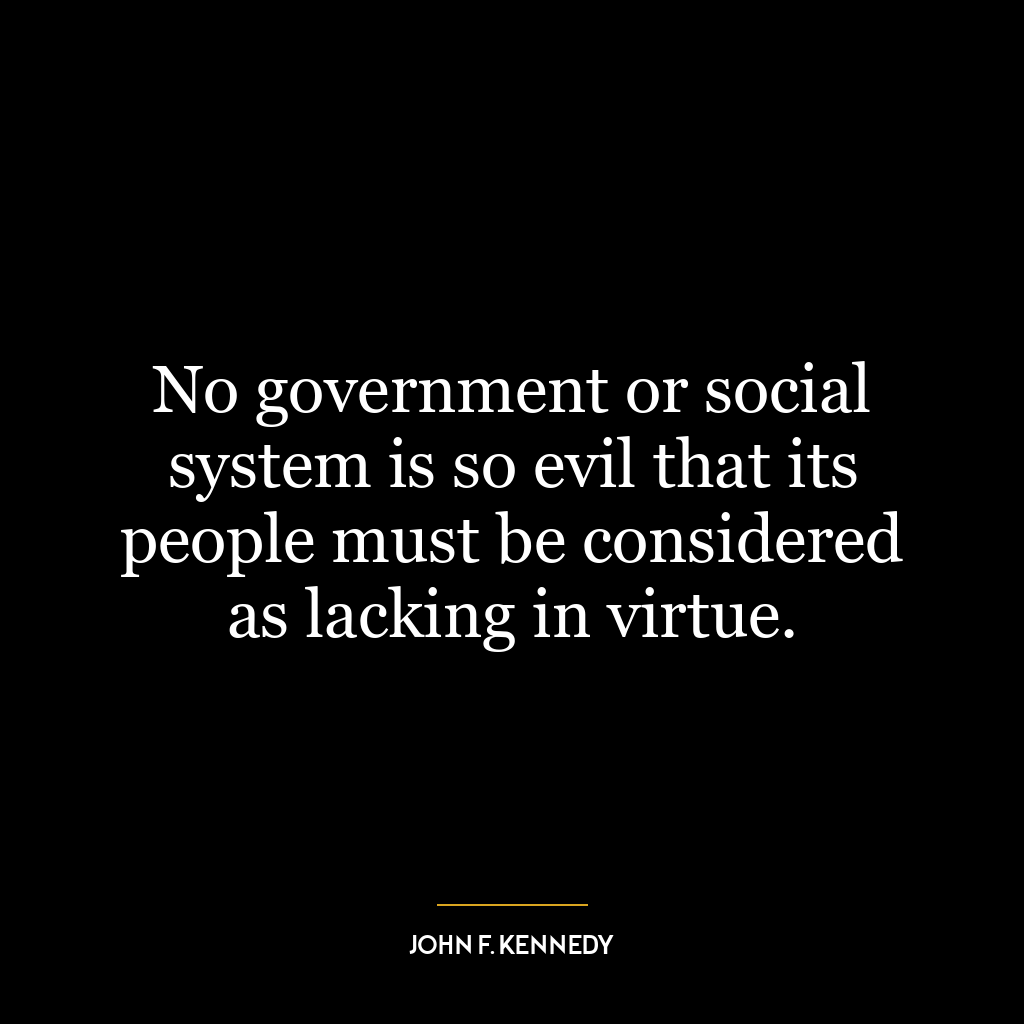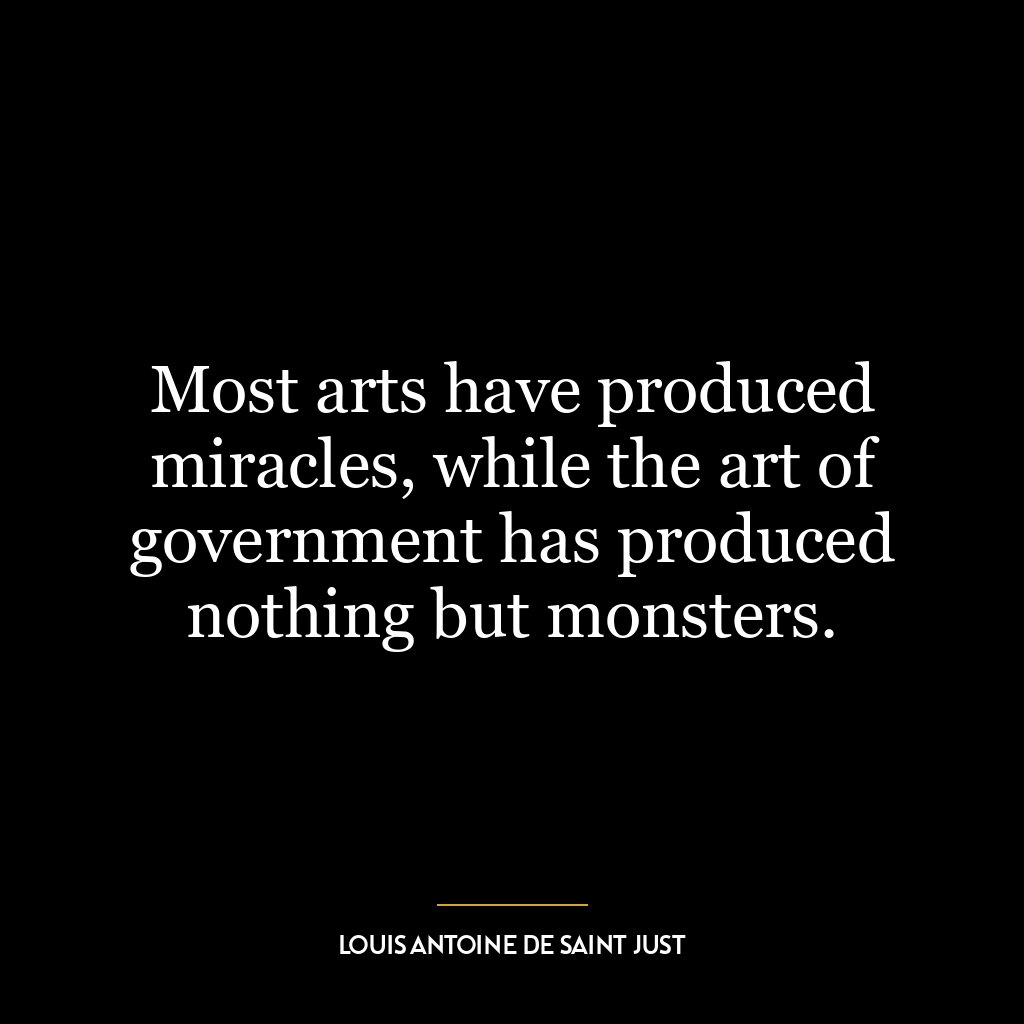No government or social system is so evil that its people must be considered as lacking in virtue.
This quote suggests that the character and virtue of individuals should not be judged based on the government or social system they live under. It highlights the idea that people, despite the circumstances they are in, can still possess virtues like kindness, honesty, courage, and integrity. It emphasizes the inherent goodness and morality that can exist in people, irrespective of a potentially corrupt or oppressive system they may be a part of.
In essence, it’s a call to separate the individual from the system, to recognize that people are not inherently evil or lacking in virtue just because they are part of an evil or flawed system. It’s a reminder that virtue is a personal attribute, not a systemic one.
Applying this idea to today’s world, we can consider situations where people are often stereotyped or judged based on their nationality or the political systems of their countries. For instance, citizens of countries with authoritarian regimes are often perceived negatively. However, Kennedy’s quote reminds us that the actions of a government do not define its people. Individuals within these systems can still uphold virtues and should be judged on their personal merits and not the actions of their leaders.
In terms of personal development, this quote can inspire us to cultivate our virtues irrespective of the environment or system we are part of. It encourages us to uphold our values and ethics, even if they go against the grain of a flawed system. It also teaches us not to judge others based on their circumstances but to acknowledge the potential for goodness and virtue in everyone.















